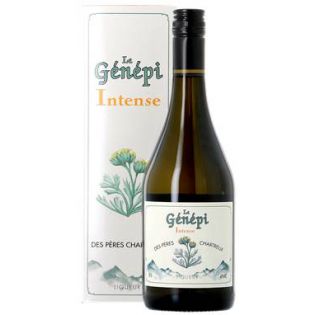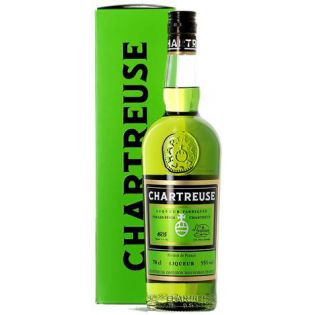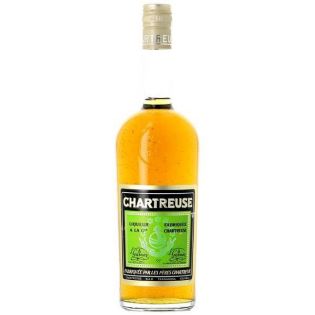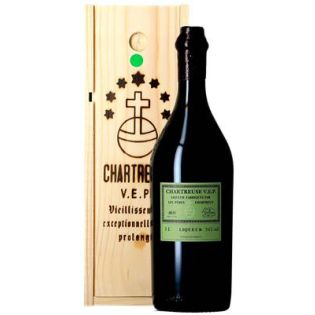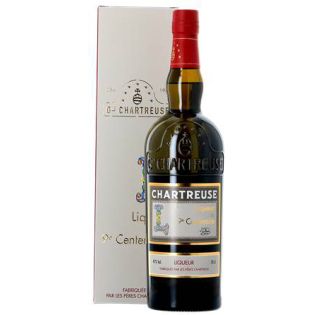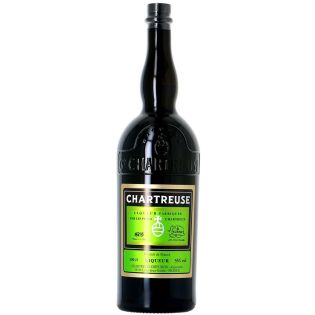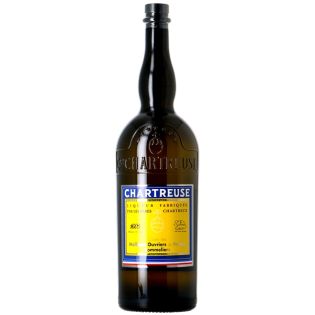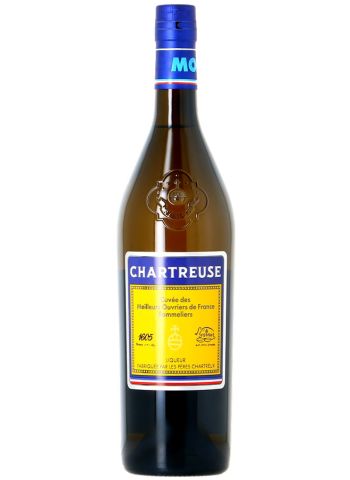
Chartreuse Cuvée des Meilleurs Ouvriers de France MOF - Mise 2024
You need 300 benefit points to obtain this bottle.

A subtle and mellow digestif to be enjoyed chilled.
|
The jewel of the Meilleurs Ouvriers de France - Sommeliers
A very luminous golden yellow colour with emerald reflections, the new Chartreuse is in the case! A real work of goldsmith for the Meilleurs Ouvriers de France Sommeliers who did not hesitate to knock on the door of the Distillerie des Pères Chartreux. The story begins in 2007: the M.O.F.- Sommeliers wanted to collaborate with the famous distillers to, in their own words, "participate in a masterpiece". A unique piece. The result is brilliant and will allow Chartreuse Diffusion to respond to a singular, identity-based expectation of today: to find themselves around an extremely typical product, both titrated and mellow, a nervous liqueur, all freshness, sufficiently complex in aroma to ensure power in the mouth, without losing any of the breed to which it belongs. |
La Chartreuse Jaune, once called the Queen of Liqueurs, is revealed in a new light....very surprising! |
All these liqueurs based on the recipe of a 16th or 17th century grimoire were elaborated by the Carthusian Fathers; their commercialisation allows their Community to survive and to continue to pray in silence and solitude, according to the inspiration of Saint Bruno.
HISTORY:
In 1605, the Maréchal d'Estrées gave the monks of the Chartreuse de Vauvert, in Paris, a Manuscript revealing the formula for an Elixir of Long Life, the origin of which was unknown.
At that time, only monks and apothecaries had the knowledge necessary to work with plants.
In 1611, Cardinal de Richelieu warmly thanked the Reverend Father of the Charterhouse of Paris, who had sent him a bezoar that had relieved him of an "unfortunate illness".(bezoar: stone found in the digestive tract of certain animals, to which medicinal virtues were attributed).
Too complex, the Elixir recipe seems to have been only partially used for several decades in Paris.
In 1737, the Grande-Chartreuse Monastery (near the city of Grenoble) decided to make an exhaustive study of it.
The apothecary of the Grande-Chartreuse, Brother Jérôme Maubec, was given the task. He succeeded in definitively establishing the formula of the Grande-Chartreuse Plant Elixir.
Its marketing was very limited at the time: it was Brother Charles who, on the back of a mule, sold it on the markets of Grenoble and Chambéry.
Still made according to the same instructions, this "Elixir de longue vie" is known today as "Elixir Végétal de la Grande-Chartreuse". It is 71°.
Green Chartreuse, 54°, known as "Liqueur de Santé", was developed in 1764. Its success was immediate, but limited to the Dauphiné region.
The French Revolution of 1789 dispersed the monks. In 1793, as a precautionary measure, a copy of the precious manuscript was made and kept by the only monk authorised to remain in the monastery, another priest who always carried the original.
Arrested and then sent to Bordeaux, the latter found a way to pass the document out of his cell to another monk who had taken refuge near the monastery.
Not being able to make use of the secret and thinking that the Carthusian Order would never be re-established, he conceded a copy to a pharmacist from Grenoble, Mr LIOTARD.
In 1810, the Emperor Napoleon I decided that the "secret remedies" must be submitted to the Minister of the Interior to be examined in order to be exploited by the State, Monsieur LIOTARD sent the manuscript to the Ministry; it was returned to him with the mention "Refused".
On the death of Mr Liotard, the documents were returned to the Grande-Chartreuse Monastery, which the monks had returned to in 1816.
In 1838, the formula was adapted to produce a sweeter and less alcoholic liqueur, the Chartreuse Jaune, 40°.
In 1903, the Carthusian monks were expelled from France. They took their secret with them and set up a distillery in TARRAGONE in Spain to produce the liqueur. The liqueur was also produced in Marseille from 1921 until 1929, under the name of "Tarragona".
During this same period, the French State sold their brand to a group of liquorists who created the Compagnie Fermière de la Grande Chartreuse. This company, whose production had nothing to do with the real Chartreuse, ceased its activities in 1929.
The monks then regained the use of the name CHARTREUSE; they resumed distillation in France, in their old distillery at Fourvoirie, built in 1860, near the Grande Chartreuse Monastery.
These buildings were destroyed in 1935 by a landslide. The production was then transferred to VOIRON, where it is still carried out, after the selection of the plants carried out inside the Monastery itself.
Since 1970, the company CHARTREUSE DIFFUSION has been in charge of packaging, advertising and selling the products developed by two Carthusian monks.
Invested with this mission by their Order, they work in the greatest secrecy and are the only ones to know the details of the production. Today, as in the past, the formula remains a mystery that modern methods of investigation have not been able to uncover.
And to finish More Information
The Estate Les Pères Chartreux
The Estate Les Pères Chartreux
It's obvious Our engagements
Fair Price
The right price for the entire selection, all year round... + 2% discount in loyalty points on each purchase!
Cutting edge selection
Designed for the amateur, novice to expert, a cutting-edge offer of the best vintages from the best winegrowers, from all regions of France and beyond.
Careful shipping in 24/48h
Your bottles are shipped within 24/48 hours in a reinforced package, in France and in 25 European countries.
2000 Food and wine pairings
Each wine is accompanied by recommendations of service and food-wine pairing

